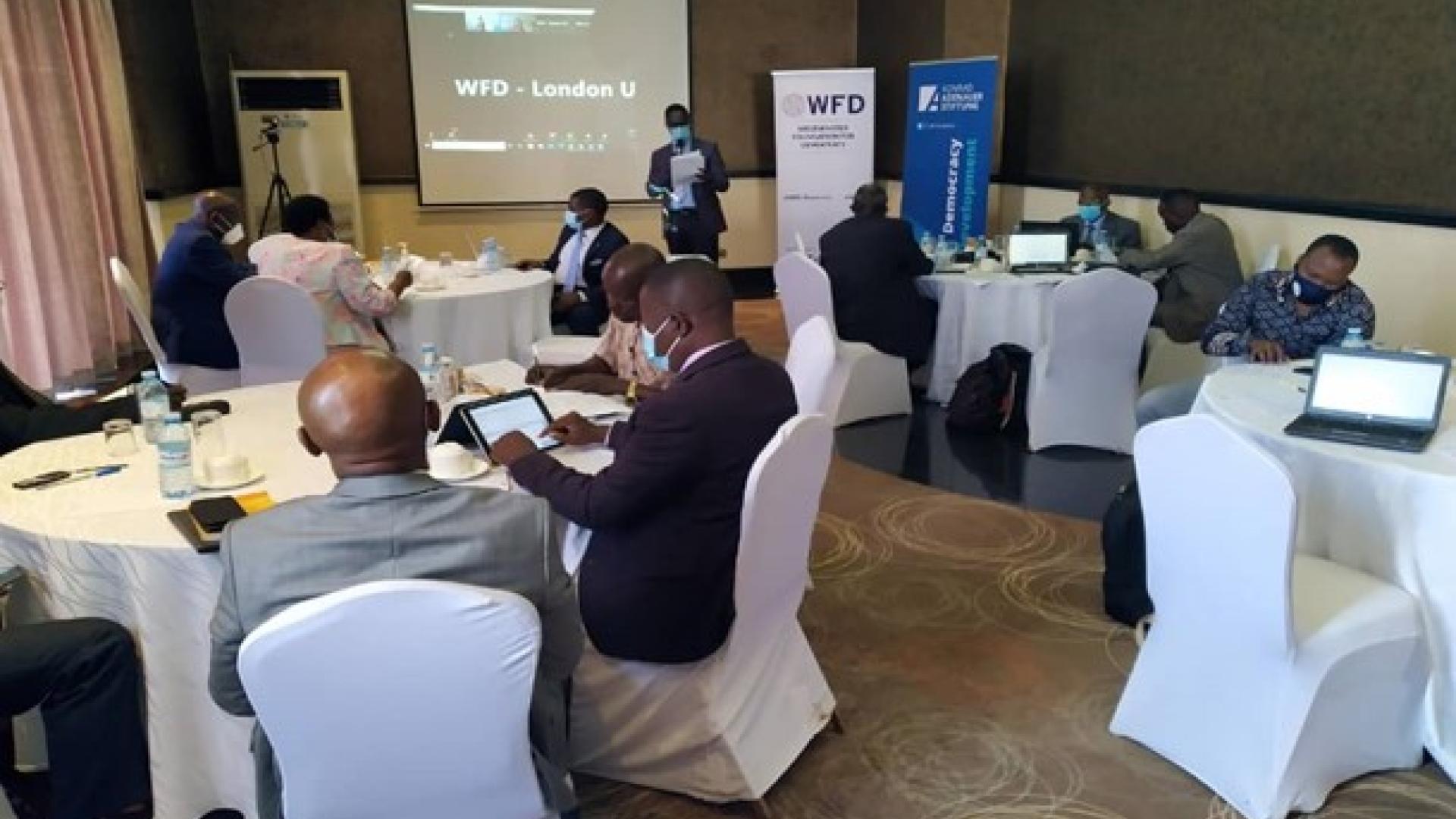Forging consensus to get a crucial climate bill passed in Uganda

WFD engaged with the Climate Change Committee and Parliamentary Forum on Climate Change in Uganda by offering support to coordinate all the actors involved to review the bill and generate consensus and advocate for its passage.
Uganda ratified the United Nations Framework Convention on Climate Change (UNFCCC) in 1994, the Kyoto Protocol in 2004 and the Paris Agreement in 2016 but was not able to translate these agreements and protocols into domestic legislation to address the challenges posed by climate change. In 2018, the Uganda parliamentary forum on climate change started conversations to support the creation of a bill that could address these issues. Hon Songa Lawrence, the chairperson of the Climate Change Committee , drafted a national climate bill to enhance Uganda’s ability to adapt to the adverse impacts of climate change, build climate resilience and pursue low greenhouse gas emissions. The bill was initially published on 7th February 2020 and was the culmination of significant effort by various players including both government and non-government actors.
The bill then stalled as there was no effective mechanism to coordinate efforts and galvanise support of the bill. Key stakeholders from the Ministry of Water and Environment, the Parliament of Uganda, civil society organisations, academia and national climate change negotiators had been heavily involved, but mainly in silos limiting the impact of their efforts.
Westminster Foundation for Democracy (WFD) engaged with the Climate Change Committee and the Parliamentary Forum on Climate Change by offering support to convene all the actors involved to review the bill and generate consensus and advocate for its passage. Among them: the national climate change negotiators, climate change government officials, members of the cClimate Change Committee and the academia.
WFD convened a high-level roundtable engagement that brought together all these actors in one room. The chairperson of the climate change committee was able to update the members, solicit support, and generate consensus. Five MPs from the Climate Change Committee attended the roundtable and the feedback generated during the roundtable indicated commitment to champion climate change issues in parliament and in particular the Climate Change Bill. Hon Songa in his closing remarks said: “I want to thank WFD for this engagement because it has always been a challenge to mobilise all these stakeholders to discuss the bill, I pray you organise more engagements to have this bill passed”.
WFD then supported a lobby meeting with the Speaker and Deputy Speaker of Parliament, WFD parliamentary champions and members of the climate change committee to solicit support for when the bill was tabled on the floor of parliament. A week later, the bill was tabled for a second and third reading and was passed without opposition.
The passing of the bill in August 2021 received a positive response from many Ugandans, especially as the country is grappling with the negative impacts of climate change, such as prolonged droughts, heavy rainfall and landslides in areas like Kasese, Bududa and Bundibugyo districts.
Also, the law lays out mechanisms for national participation in climate change decision-making, provides for institutional arrangements for coordinating and implementing climate change response measures and provides for financing for climate change. It also stipulates that the Climate Change Department in the ministry of water and environment is responsible for submitting a biennial report on climate change to the Minister, who shall submit it to the cabinet for consideration and approval, and after that, lay it in parliament.